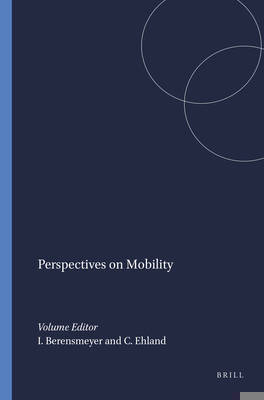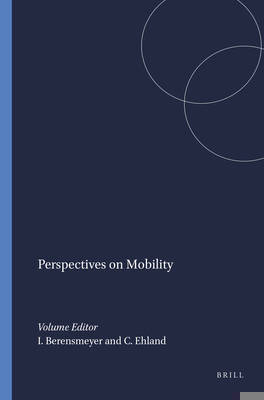
- Afhalen na 1 uur in een winkel met voorraad
- Gratis thuislevering in België vanaf € 30
- Ruim aanbod met 7 miljoen producten
- Afhalen na 1 uur in een winkel met voorraad
- Gratis thuislevering in België vanaf € 30
- Ruim aanbod met 7 miljoen producten
Zoeken
Omschrijving
Literature as cultural discourse has always courted mobility. From the nomadic wanderings of the heroes of Homer and Virgil through the adventures of the medieval knight-errants to the travellers of modern times, movement and mobility have been constitutive elements of story-telling. Since writers have begun to explore the experiential dimension of movement their texts have embraced the essential changeability and instability of 'mobile worlds'. In this sense literature reflects and processes the transformative force of movement on the perception of the world and is part of the broader cultural discourses of mobility.
From the 1936 film Night Mail to the rapid movements of the dime novel detective and the metaphorical coding of automobility in Futurist poetry, the essays in this volume offer new perspectives on the phenomenon of mobility at the intersection between the literary imagination and cultural experience. They explore movement as a decisive force of change in the history of modernity and show how literature in its representation of mobility simultaneously aims both to mirror and to grasp the phenomenon.
From the 1936 film Night Mail to the rapid movements of the dime novel detective and the metaphorical coding of automobility in Futurist poetry, the essays in this volume offer new perspectives on the phenomenon of mobility at the intersection between the literary imagination and cultural experience. They explore movement as a decisive force of change in the history of modernity and show how literature in its representation of mobility simultaneously aims both to mirror and to grasp the phenomenon.
Specificaties
Betrokkenen
- Uitgeverij:
Inhoud
- Aantal bladzijden:
- 236
- Taal:
- Engels
- Reeks:
- Reeksnummer:
- nr. 17
Eigenschappen
- Productcode (EAN):
- 9789042037083
- Verschijningsdatum:
- 1/01/2013
- Uitvoering:
- Paperback
- Formaat:
- Trade paperback (VS)
- Afmetingen:
- 155 mm x 234 mm
- Gewicht:
- 331 g

Alleen bij Standaard Boekhandel
+ 247 punten op je klantenkaart van Standaard Boekhandel
Beoordelingen
We publiceren alleen reviews die voldoen aan de voorwaarden voor reviews. Bekijk onze voorwaarden voor reviews.







